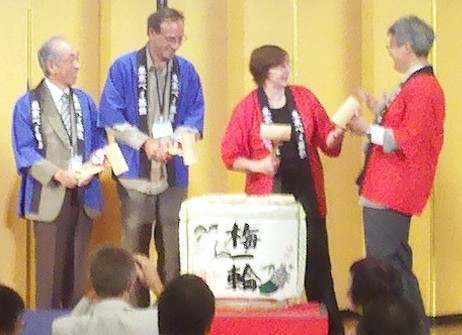An encouraging sign today: the New York Times reports:
The night Lisa Murkowski announced she would mount a write-in campaign to retain her Senate seat, she acknowledged to a crowd of supporters that her odds were slim. Then she prompted a defiant roar: invoking Native Alaskan culture, she told the crowd that the ancient Aleut language contained no word for "impossible."
This made the crowd roar, but made me put my hand on my wallet, to make sure it was still there, as I always do when someone tells me that language X has no word for concept Y (I have grown used to such claims always being unadulterated bullshit). But then — a surprise! — the Times goes on:
It was a deft play to the state's strong sense of identity and a direct appeal to native communities, whose support could prove crucial. It was also inaccurate. The word in Aleut is haangina-lix.
"It's very clear that you can say ‘impossible,‘ " said Gary Holton, the director of the Alaska Native Language Archive. "Clearly, she wasn't checking her facts."
Fact checking! On a point about language! Kudos to the the New York Times. Champagne will be served in the Senior Writers' Lounge at One Language Log Plaza at 5 this afternoon to celebrate this unusual and praiseworthy sign of interest in linguistic accuracy in the journalistic profession. We are most encouraged, and we salute William Yardley, the reporter who wrote the story.
Read the rest of this entry »
